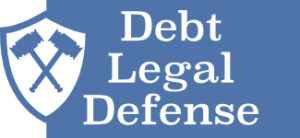Many people fall behind on their bills, but if you receive a letter in the mail stating that a debt collector is suing you, you may be wondering what rights you have and what steps to take next. After receiving a Texas debt collection summons, it is imperative you respond within the allotted time period. If you have questions regarding a debt collection lawsuit, a Texas debt collection lawsuit lawyer can advise you of your rights and answer any questions you may have. Additionally, a debt defense attorney may also be able to get your debt collection lawsuit dismissed. Here’s what you need to know about responding to a Texas debt collection lawsuit.
What Should I Do If A Debt Collector Sues Me?
If you’re served with a debt collection lawsuit, don’t panic. Being sued by a debt collector can be scary, but you do have rights and it is important you do not ignore the summons. By ignoring the summons, the court will likely grant a default judgment against you. This can lead to the court ruling in favor of the debt collector. In Texas, the defendant generally has around 14 to 20 days to respond to a debt collection lawsuit summons.
What Are The Options For Responding To The Lawsuit In Texas?
An answer to the debt collections lawsuit should be a written response that the courts and the plaintiff should both receive a copy. Your answer to a debt collections summons can be a written letter or it can be drafted using a Texas state courts form. In the answer, you should assert a general denial of allegations made by the plaintiff. By denying the information, the defendant places the burden of proof on the debt collector, who then must prove that the debt is valid. You can effectively deny the allegations by denying each issue and through the use of affirmative defenses. Common affirmative defenses used in debt collection lawsuits include:
- You have already paid the debt
- The debt does not belong to you
- The paperwork has clerical issues
- The statute of limitations to file a claim has passed
- The indebted account in question does not belong to you
- The debt was canceled
- The contract used was illegal or fraudulent
- The debt collector used illegal debt collection practices
Successfully utilized affirmative defense can help reduce the defendant’s liability in court. If you are facing a debt collections lawsuit, a Texas debt collections lawsuit lawyer can advise you on which affirmative defenses may be applicable to your situation.
What is the Fair Debt Collection Practices Act?
The Fair Debt Collection Practices Act is a Federal state law that is intended to protect consumers from debt collectors and abusive debt collection practices. There is also the Texas Deceptive Trade Practices Act or the Texas Debt Collection Act, this state-level law regulates how debt collection agencies can contact consumers. Debt collector conduct that is illegal under the Fair Debt Collection Practices Act includes:
- Threats of violence or any other criminal acts
- The use of obscenities or profane language
- Abusive collection tactics
- The use of fake names or misidentification
- Failing to provide a name when contacting consumers by phone or mail
- Misrepresenting the amount of the debt
- Attempts to collect unjustifiable amounts
- False accusations by the debtor of consumer fraud or other illegal activities
- Threats of the repossession of property or arrest
Like the Fair Debt Collection Practices Act is also designed to protect consumers from debt collections. Other types of behaviors that are prohibited under the Consumer Protection Act include:
- Calls between the hours of 9 PM and 8 AM
- Calls to the consumer’s work if the debt collector has reason to believe the employer does not allow debt collection calls
- Any behavior intended to oppress, abuse, or harass the consumer
- Unfair and unconscionable means of attempting to collect a debt
- Determine which party or party should be held liable
Texas Debt Collection Lawsuit Lawyers
If you’re being sued by a debt collector, the debt defense lawyers of Debt Legal Defense can help. We have represented numerous consumers in debt collection lawsuits and are highly knowledgeable regarding the laws surrounding debt collection practices. We offer free consultations to new clients throughout the San Antonio area. Contact us today to learn more at 210-468-1008 or request an appointment online to set up a complimentary consultation.






